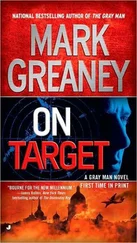If Clark pushed back at this moment, it would just up Sharps’s level of curiosity. Much better, Clark realized, for him to make Sharps think he’d won, that it was all over.
Clark, for the first time in this conversation and for one of the first times in his life, demurred.
With a long, slow nod he said, “You can’t get good help these days. My crew blew it. Fucking Keystone Kops.”
He saw the glint in Sharps’s eye, the look of a man full of his own power and worth. A winner, glorious in his victory but forcing a magnanimous comment. He said, “It happens, friend. Maybe my crew just got lucky.”
Clark pulled his phone out of his pocket and dialed Ding. When he answered, Clark said, “Go back to the place, break it all down. Get yourself and the others to Penn Station in ninety minutes.” A pause. “Just do it. I’ll see you there.” Clark hung up and slipped the phone back in his jeans.
The glint in Sharps’s eye remained.
Clark shrugged like a man who knew he was busted, but a man acting like it was no big deal. “What the hell, the money wasn’t what we thought it was going to be, anyway. Shitty per diem. You’d think they had us working in Port-au-Prince for what they were giving us for food and booze.”
Sharps smiled. “Ouch.” With a nonchalance that Clark read as bullshit he said, “Since it doesn’t matter anymore, maybe you’ll tell me. Which delegation were you working for? My guess is Chile, or Denmark, but I’m prepared for you to surprise me.”
Clark put up an apologetic hand and gave his shoulders another huge shrug. “C’mon, Duke. We’re running home with our tails between our legs on this one. Allow me to retain a modicum of self-respect by not having me completely lose my professional decorum and reveal my client’s identity.”
Sharps said, “You had a lot of glory days in your career. One hell of a good run. Everybody gets old. Everybody loses their touch.” He smiled, a look that seemed like he felt sorry for the old man in front of him. “Just as there was honor in being the best, there is also honor in knowing when it’s over.”
Clark took three slow breaths, forced his blood pressure back down a notch, then stood and extended his hand. “Thanks, Duke. I owe you.”
Duke Sharps shook Clark’s hand, but he did not get up.
Clark pushed his way through a crowd of hipsters, left the coffee shop, and walked back to the safe house. He assumed he was being watched, but Sharps had known he was in the 79th Street coffee shop, which surely meant he knew Clark’s operation was set up at the building next door.
—
Five minutes later, Clark entered the safe house.
Sam and Dom were hurriedly packing up equipment, but Ding was standing in the middle of the room with a Glock pistol on his hip and a worried look on his face. “You okay?”
“I’ll be better after I vomit.”
“What happened?”
“Sharps compromised us. I don’t know how he did it, but he did.”
Sam said, “So we’re all leaving?”
“No,” Clark said. “Sam, you are staying here. You’ll get an apartment or a hotel room with eyes on the front of Sharps’s building, and you will lock yourself in and stay out of sight. You’ll keep watch on who comes and goes into that entire building. It will be a shitty job, but you’ll have facial recog and video equipment to help you.”
“No problem,” Sam said.
“As for the rest of us, we’re going home, but we’ll be back.”
“What about the UN vote?” asked Caruso.
“My guess is the rules vote will end up ‘no,’ and the Sanctions Committee will not hear the petition to extend the economic sanctions on North Korea.”
Caruso couldn’t believe it. “So Sharps wins? Just like that?”
“He wins a battle, but only that. I’m going to take down that son of a bitch, and nothing I’ve ever done will give me greater pleasure.”
37
Iranian bomb maker Adel Zarif arrived in Mexico City using his Syrian papers after flying from Pyongyang to Havana, where he had to wait a day for his connection. Even in Cuba he’d been watched over by North Korean RGB minders, who allowed him freedom of action but little freedom of movement.
On touchdown at Mexico City’s Benito Juárez International Airport he expected to be met by RGB, but instead a single Maldonado cartel member was waiting in the arrivals section for him. He gave his name as Emilio, and he spoke English. Zarif had learned English in Lebanon, and although his knowledge of the language was not as good as Emilio’s, they were able to communicate without any problems.
Together they drove to a building on a congested intersection in the downtown Tepito section of the city. Zarif was taken to a second-floor safe house that was guarded by three other men, all of whom seemed to be in their early twenties.
He was given his own small apartment in a back corner of the safe house, and a stocked refrigerator full of Pacífico beer that he would not drink and foreign food he would not eat, and he had Emilio at his beck and call, which meant sending him out to get meat and salad and bread and bottled water.
And a laptop computer. Zarif had a lot of work to do to pull off this Mexico operation, and he did not want to spend his time sitting around in some apartment waiting for something to happen.
At the end of the first day Emilio delivered Zarif a clean cell phone and a used laptop, and once he leeched onto the Wi-Fi signal from an Internet café downstairs, he was able to begin his research and start his operation.
He had been told that Maldonado had men working in the Federal Police, and they would meet with him five days before the American President’s arrival to go over the motorcade route. In the meantime, however, Zarif spent virtually all his time on YouTube, pulling up clips of previous presidential visits to the city.
From the beginning he knew the President’s arrival was the best time for him to act. Even if he had a perfect itinerary for the official visit to go on, there would be so many unknown variables at each location that his chances of success would be low.
But two absolutes, he knew already, were that the President would land at Benito Juárez airport, and then he would go via motorcade to the Palacio Nacional in the center of the city, where he would meet with President Lopez of Mexico.
With two fixed points to work with, he then had only to observe previous motorcades’ movements through the city to get a feeling for the route. Yes, Zarif knew the U.S. Secret Service would do what they could to change the route from other visits, but there almost always existed unavoidable repetitions, usually nearest to the beginning and ending of the route, where the President’s vehicle would necessarily have to pass.
He watched video after video, official films, documentaries in Spanish and English and even Chinese, as well as dozens upon dozens of jerky and blurry camera-phone street-level clips, and he pored over every frame, doing his best to match locations in the videos to places he could pinpoint on Google Maps. Using the Street View feature, he’d made his own maps, and it was a slow and laborious process, but from time to time he would ask for Emilio’s help in identifying a street or a building in the videos. From this Zarif managed to trace his best estimate of the route taken by every official motorcade coming from the airport on record.
After working for two days on little else, he had identified four locations where every official motorcade from Benito Juárez to the Palacio Nacional passed.
This was progress, but he knew he was doing this backward. He had no access to explosives himself; those had to be provided to him. Furthermore, he had no idea what he would be given to work with. Without this information, he found it impossible to pinpoint an exact location for his action. The conditions on the street would normally determine what kind of weapon he chose, but in this instance, the weaponry he was given access to would determine where he would place it.
Читать дальше












